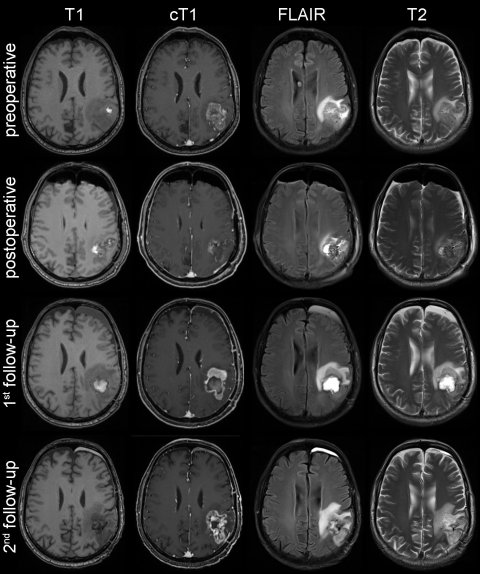Article • Cancer mortality study
Does ethnicity affect brain tumour survival?
New research has pinpointed ethnicity as a potential factor in brain tumour survival. A UK study showed that white British people who have been diagnosed with a malignant primary brain tumour appear to have an increased one-year mortality than patients from at least four other ethnic groups.
Report: Mark Nicholls

© P. Kickingereder / Universitätsklinikum Heidelberg
In what is the first study to look at the impact of ethnicity on survival from brain tumours, researchers found that people categorised as “other ethnic” were 30% less likely to die within one year than white British people. Results also showed that patients from three other ethnic categories had a decreased risk of death when compared to white British patients: “Indian” (16%), for “other white” (17%) and 19% for “unknown”.
PhD research student Hiba Wanis, who presented the research at the National Cancer Research Institute (NCRI) Festival, told online delegates that although brain tumours were diagnosed more often in white British people, a higher percentage still died within one year than people from other ethnic groups. Between 2012 and 2017, a total of 13,339 white British people died from brain tumours, representing 64% of these patients. This compares with 19 people of Bangladeshi origin (63%), 166 (52%) of Indian origin, 533 (52%) of other white origin, 95 (51%) of Pakistani origin, and 280 (41.5%) from other ethnic groups. Researchers hope that the outcomes from this analysis will help doctors provide relevant and accurate information on patient prognosis, and also allow patients to understand why they could be at a higher or lower risk of survival than other groups.
Exploring the connection
Ms Wanis, a research assistant in brain tumour epidemiology within the Cancer Epidemiology and Cancer Services Research Group at King’s College London (KCL), looked at data from 24,319 adult patients living in England, who had been diagnosed with a malignant primary brain tumour between 2012 and 2017. ‘Brain tumours are under-researched compared to other cancers, and until now, no study has investigated the impact of a person’s ethnicity on brain tumour survival using information on patients in the whole of England,’ she said and added that the improved and detailed cancer data captured by the National Disease Registration Service now within NHS Digital provided a good opportunity to explore this connection.
While the results of this study show a correlation between ethnicity and survival rates, there are other factors to consider that may play a role. Ms Wanis said: ‘It is probably too early to speculate on what may lie behind these differences, but a number of factors may be involved. These include how early people ask their doctors about symptoms, how early in the disease a diagnosis is made, better reporting, lifestyle and cultural factors, deprivation, tumour characteristics and behaviour, and treatment options.’
The next step is to investigate these factors in more detail to explore survival differences further, including accuracy of death registration for patients from ethnic minority groups compared to others.
10.01.2022











